Natural stone and porcelain tiles are popular materials that have been used across kitchens, ground floors, bathrooms and outdoors for many years. Both offer various benefits and qualities, as well as beauty and charm. Many customers ask what is the difference between natural stone and porcelain tiles, so we felt a simple, but comprehensive guide, explaining some key differences would be helpful when it comes to choosing your own floor or wall tiles.
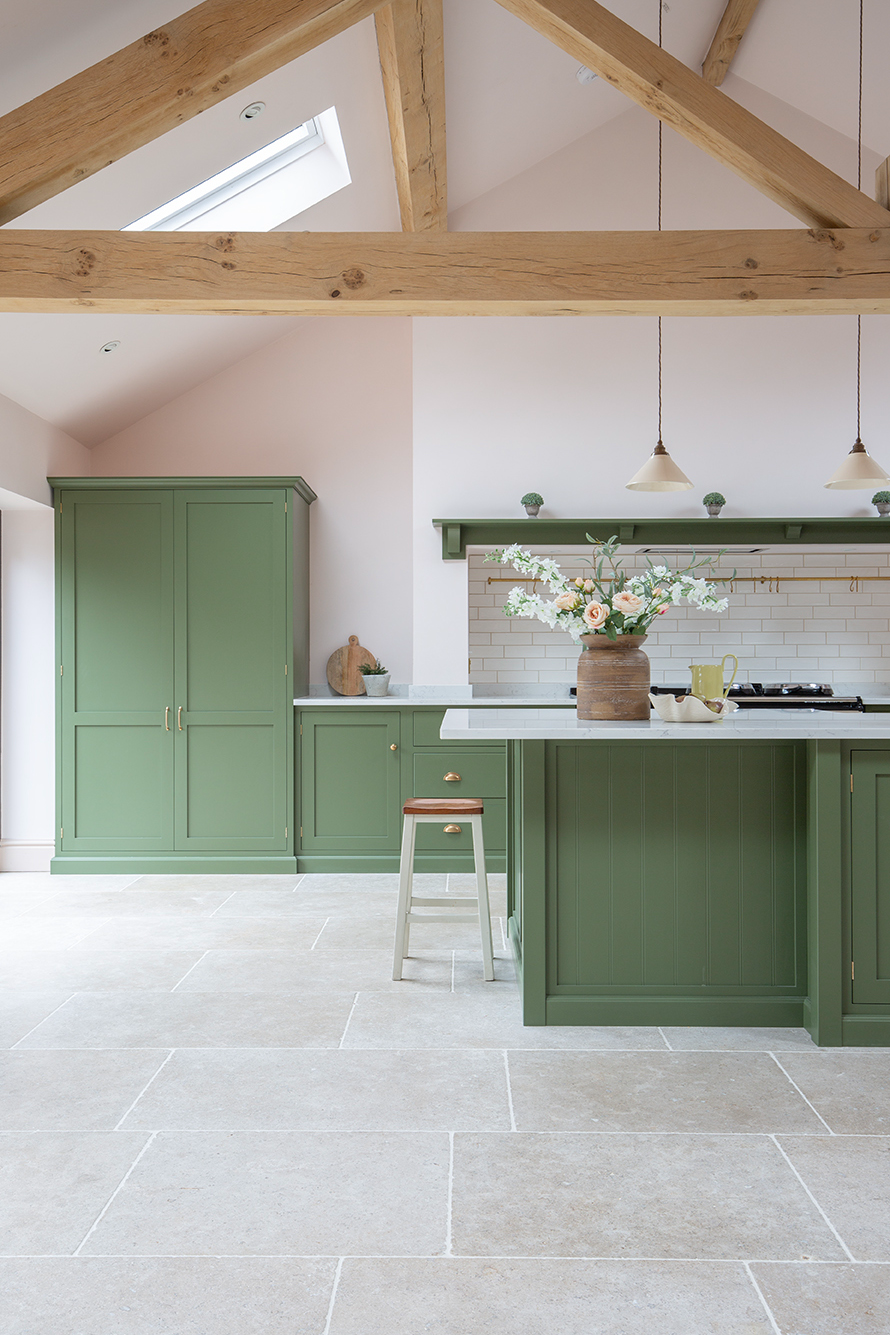
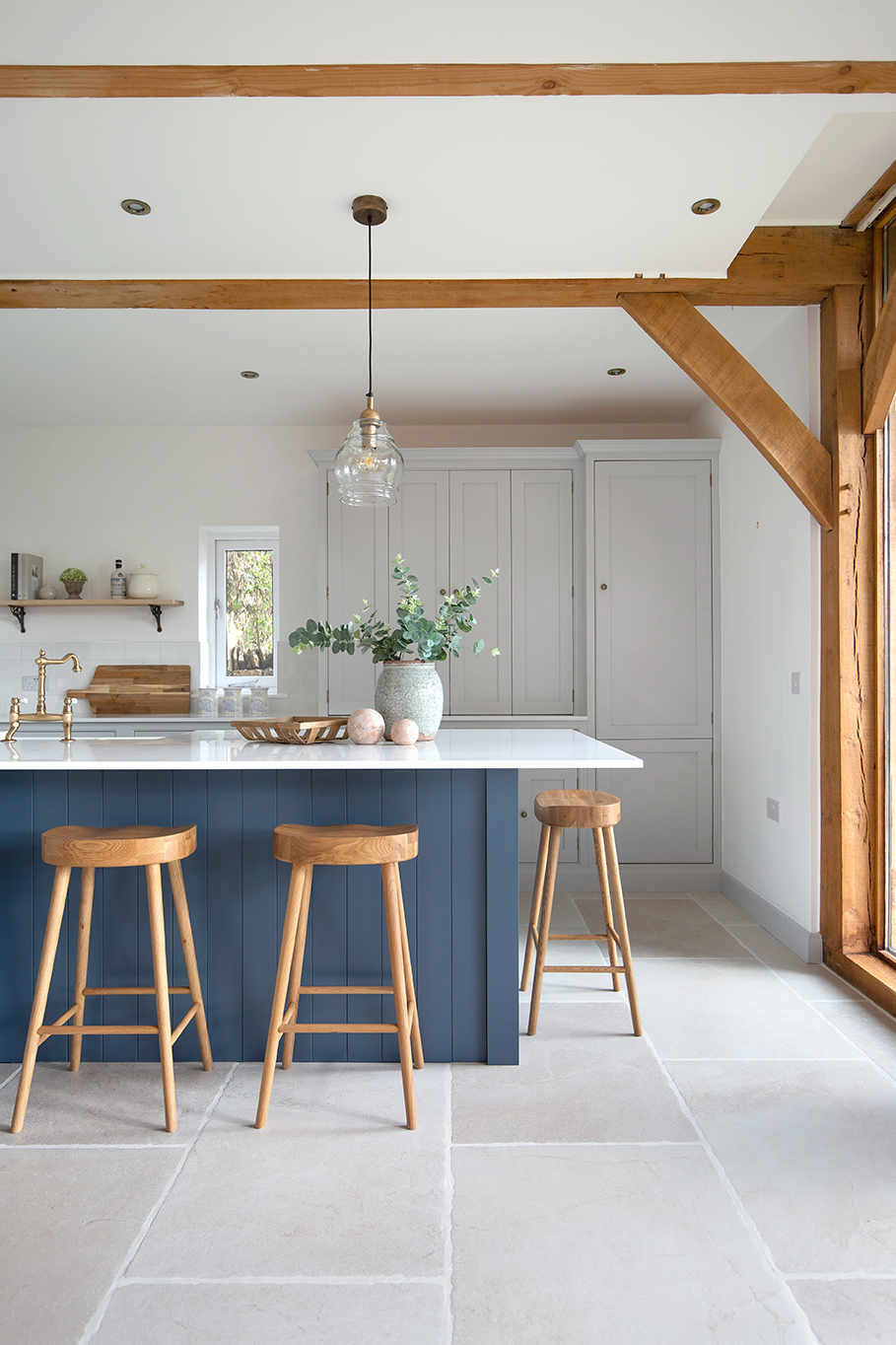
Dijon Tumbled Limestone Tiles
Dorchester Aged White Porcelain Tiles
Comparison: Natural Stone vs Porcelain Tiles
Starting with the basics, as the name suggests, natural stone is a naturally occurring material that is quarried from the earth. Natural stone tiles are often, but not limited to, limestone, marble, slate or sandstone.
Limestone and sandstone are sedimentary rocks, that can be formed over millions of years. Slate is a fine-grained metamorphic rock formed from existing rocks such as shale or mudstone, whereas marble is a metamorphic rocks formed by the alteration of limestone by heat and pressure (thermal metamorphism). All of which processes create naturally dense materials.
Porcelain tiles are a man-made product that combines kaolin clay, finely ground sand and feldspar. The clay mixture is fired to an extremely high temperature, upwards of 1200 degrees, resulting in a very dense tile.
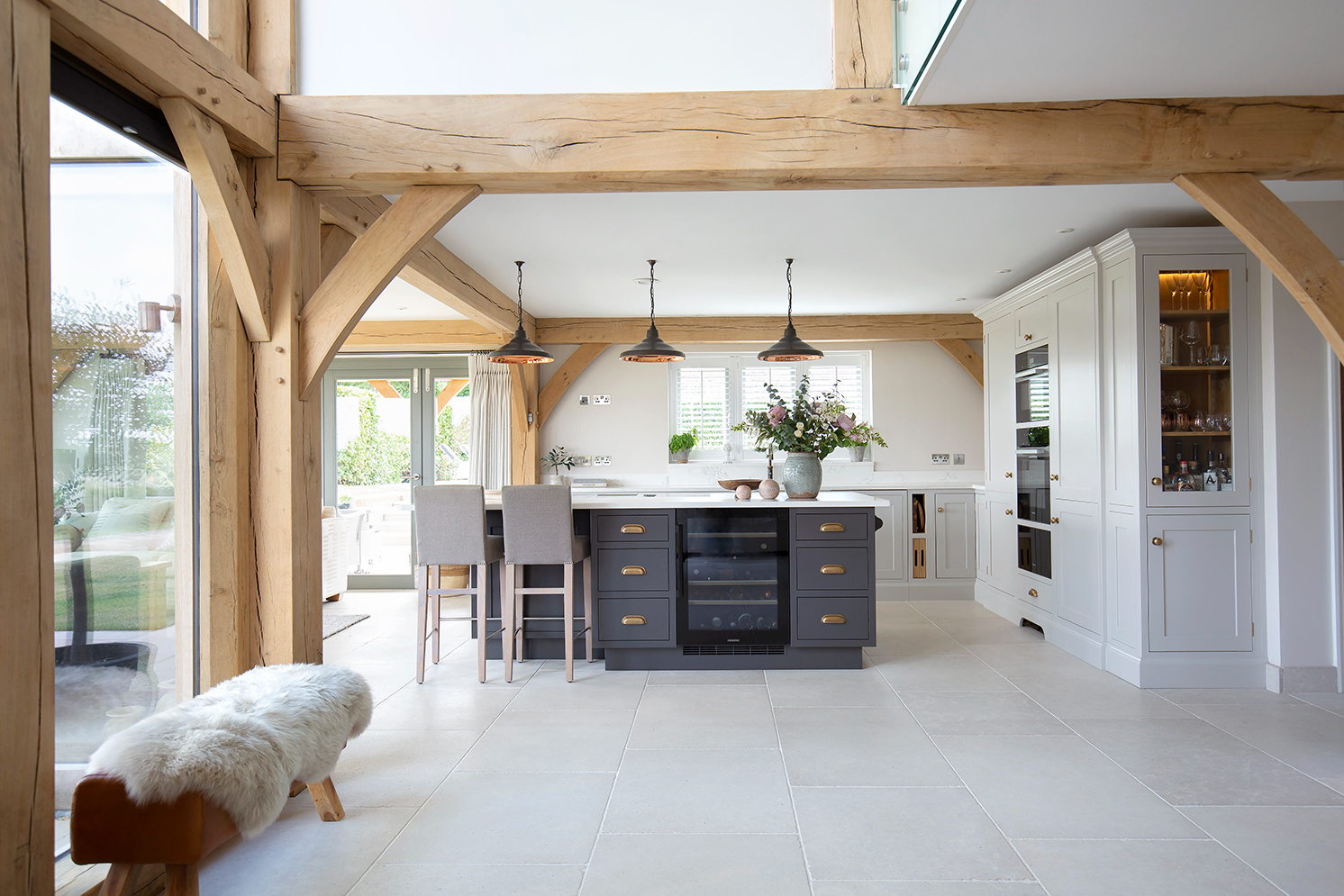
Versailles Softly Aged Limestone Tiles
Aesthetics & Durability
The beauty of natural stone is that no two tiles are ever the same, meaning a stone floor will be entirely unique. With this in mind, most natural stones have some degree of tonal variation, and it is common for calcite veining, fossils, fissures, vents and crystallisation to be present in limestone and marble tiles. These features and characteristics within natural stone are often what provide the charm of stone tiles and why many love the look of real stone.
There is also the option of different finishes applied to a stone, whether it be to create texture, tumbled and worn edges, straight edges, a sheened surface, matt tile or even a high polished surface. These finishes will each alter the tone of a stone slightly, providing even more possibilities of this natural product. External natural stone paving will appear darker in tone when wet.
Limestone Tiles
Limestone tiles are an extremely popular choice for natural stone, available in neutral ivory, beige and grey tones and are often suitable for both indoor and outdoor use. Limestone tiles provide both charm and practicality, exuding a timeless feel and are a perfect option for kitchens, ground floors and garden patios.
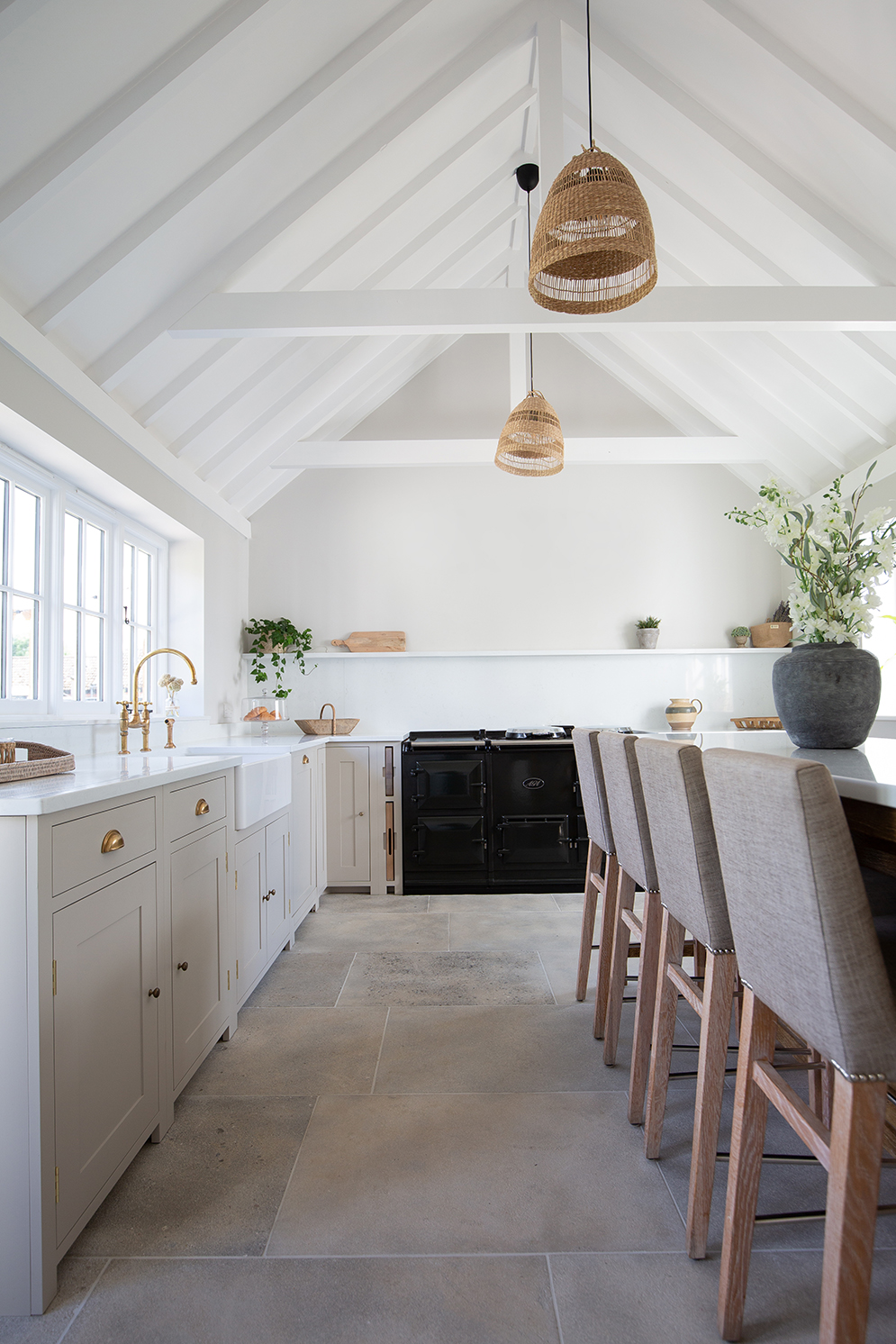
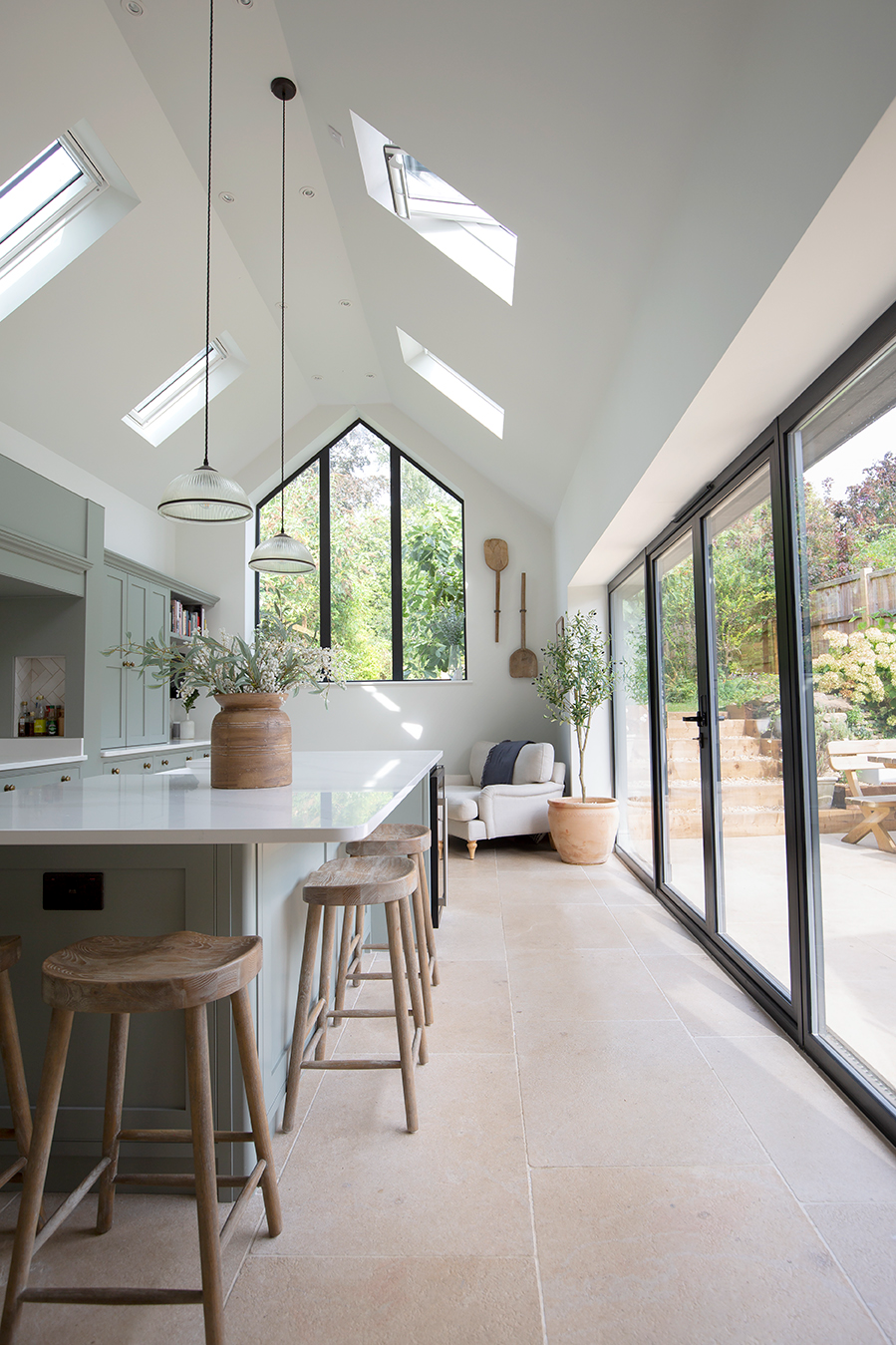
Clermont Gris Lightly Tumbled Limestone Tiles
Tuscany Seasoned Limestone Tiles
Marble Tiles
Marble tiles are a classic addition to any home, exuding elegance and beauty. Marble is a dense material available in an array of unique shades, patterns and delicate veining, particularly loved for their refined look in bathrooms. Most marbles are not suitable for outdoors as they are not frost resistant.
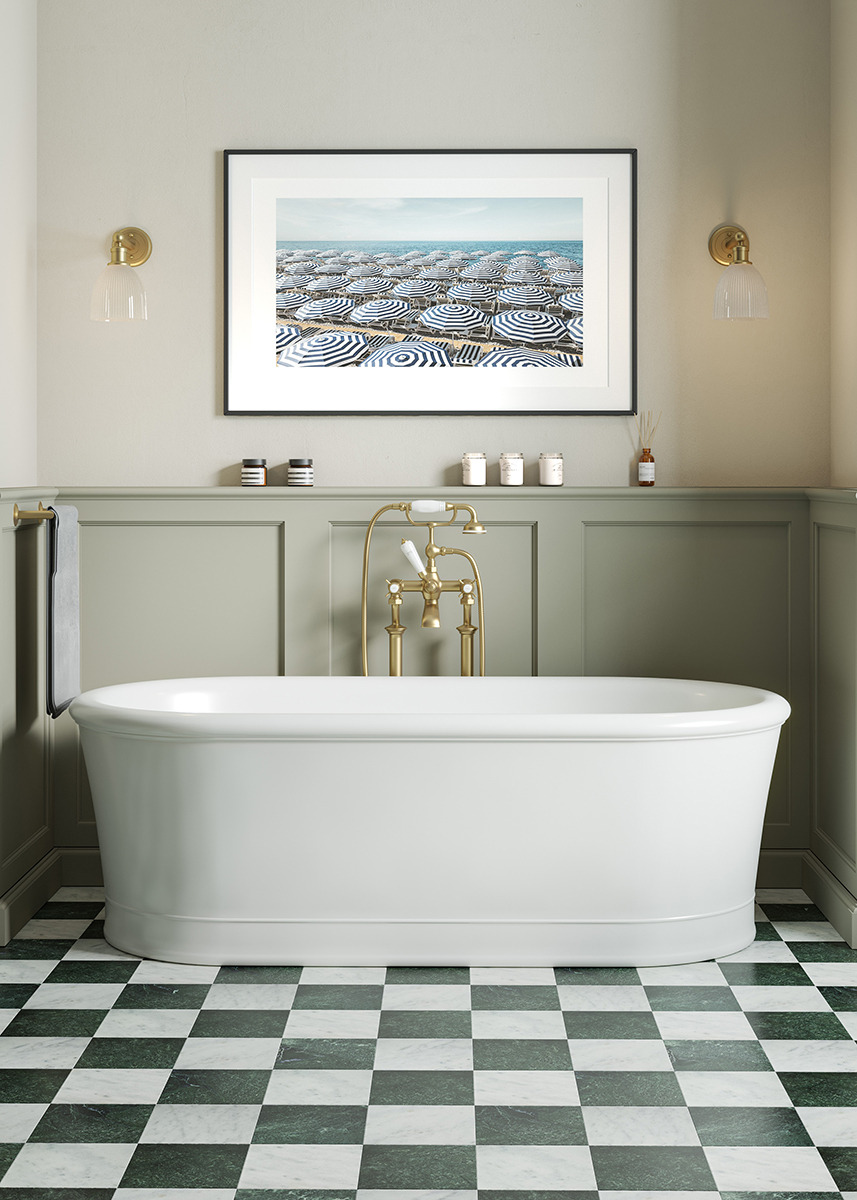
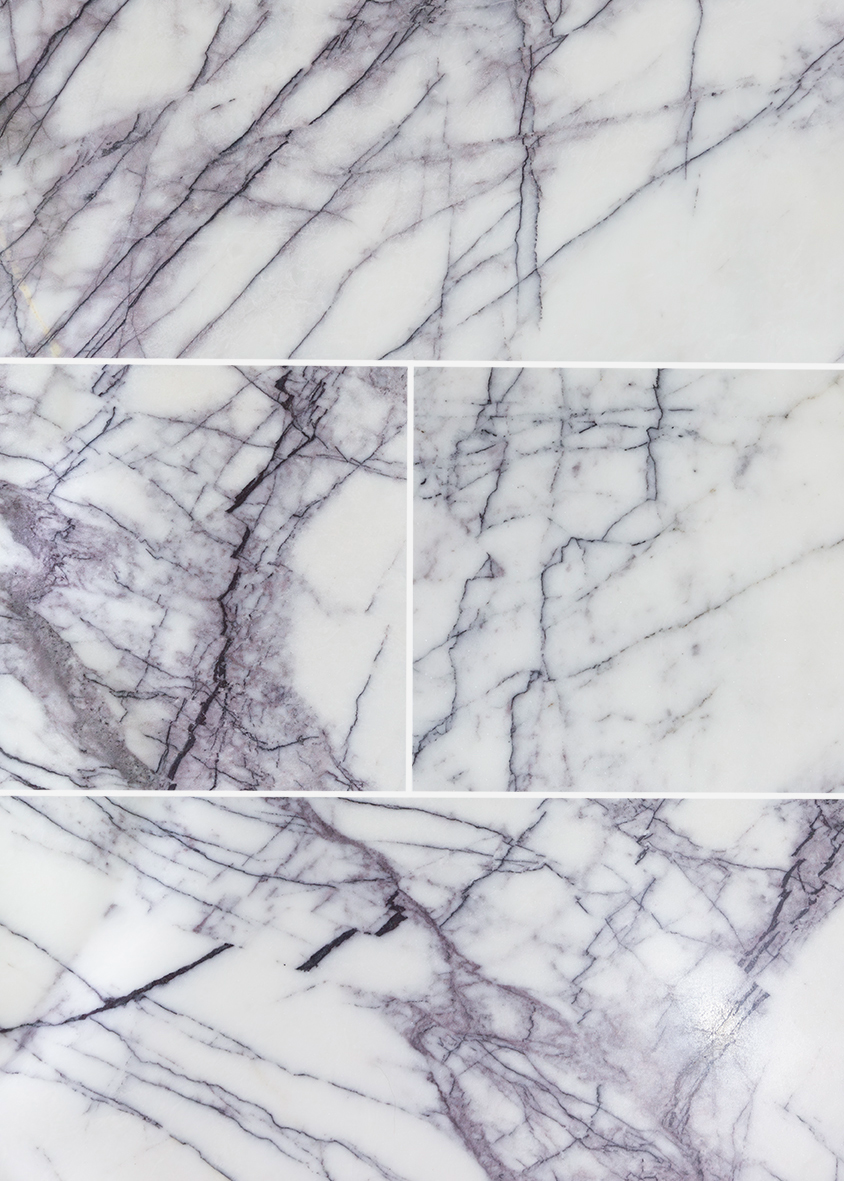
Riviera Emerald & White Marble Tiles
Carrara Viola Dusk Marble Tiles
Slate Tiles
Slate tiles offer a blend of character and durability, making them another great choice for natural stone flooring. With their rich, earthy tones—ranging from soft greys to deep charcoals—slate brings depth and texture to both traditional and contemporary settings. Naturally hardwearing, slate tiles are well-suited for indoor and outdoor spaces alike, such as kitchens, hallways, and exterior areas.
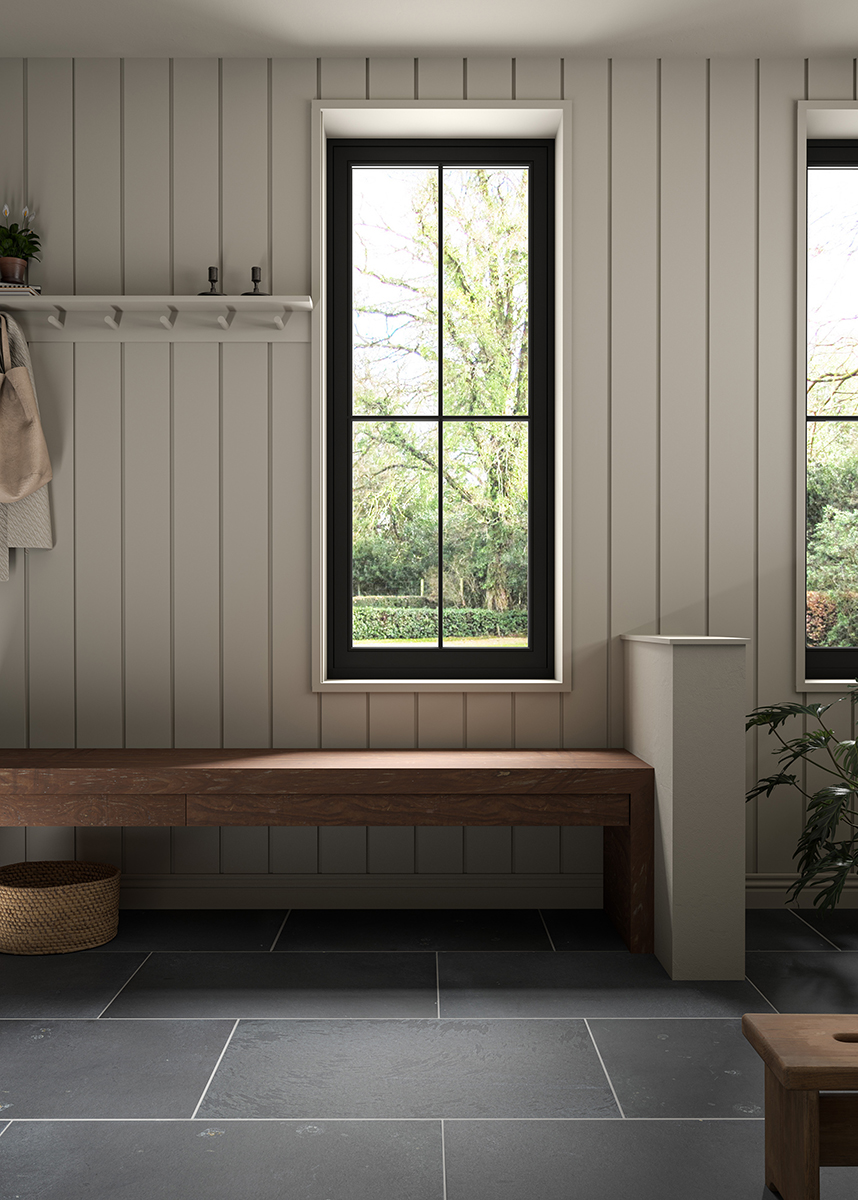
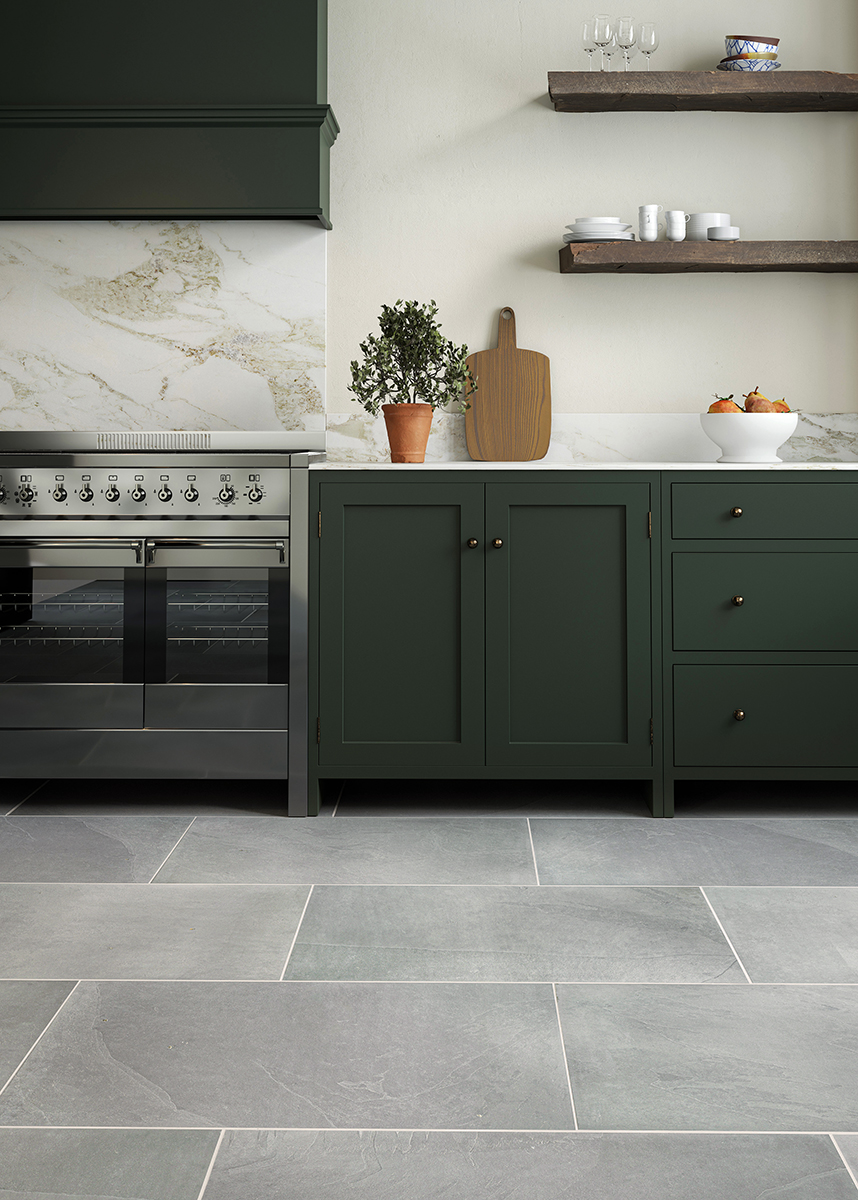
Brazilian Black Slate Tiles
Brazilian Grey Slate Tiles
Porcelain is a manufactured product made to mimic the look of stone, as well as wood.
Some porcelains have higher variations to replicate a particularly tonal stone, whereas other porcelains may be plainer in appearance and more uniform colour. All stone effect porcelains have some level of pattern or print repeats – this could be anywhere from every 10 tiles to every 100 tiles, dependant on the product.
We list the pattern repeat on every porcelain product page. Although porcelain is a man-made product, the developments in machinery and print quality means there are a number of very convincing porcelains on the market, even imitating fossils, veining and the tumbled edges of a real stone floor.
The majority of porcelain tiles come in a matt natural finish, whilst textured finishes and gloss finishes are also commonly available for some porcelains. External porcelain paving tends to stay a similar colour when wet.
Stone Effect Tiles
Stone effect tiles offer a wonderful alternative to real stone, usually replicating the look of naturally occurring limestone. Stone effect porcelain is a hardwearing and durable material replicating the tones, details and markings found in limestone but with the benefits of porcelain.
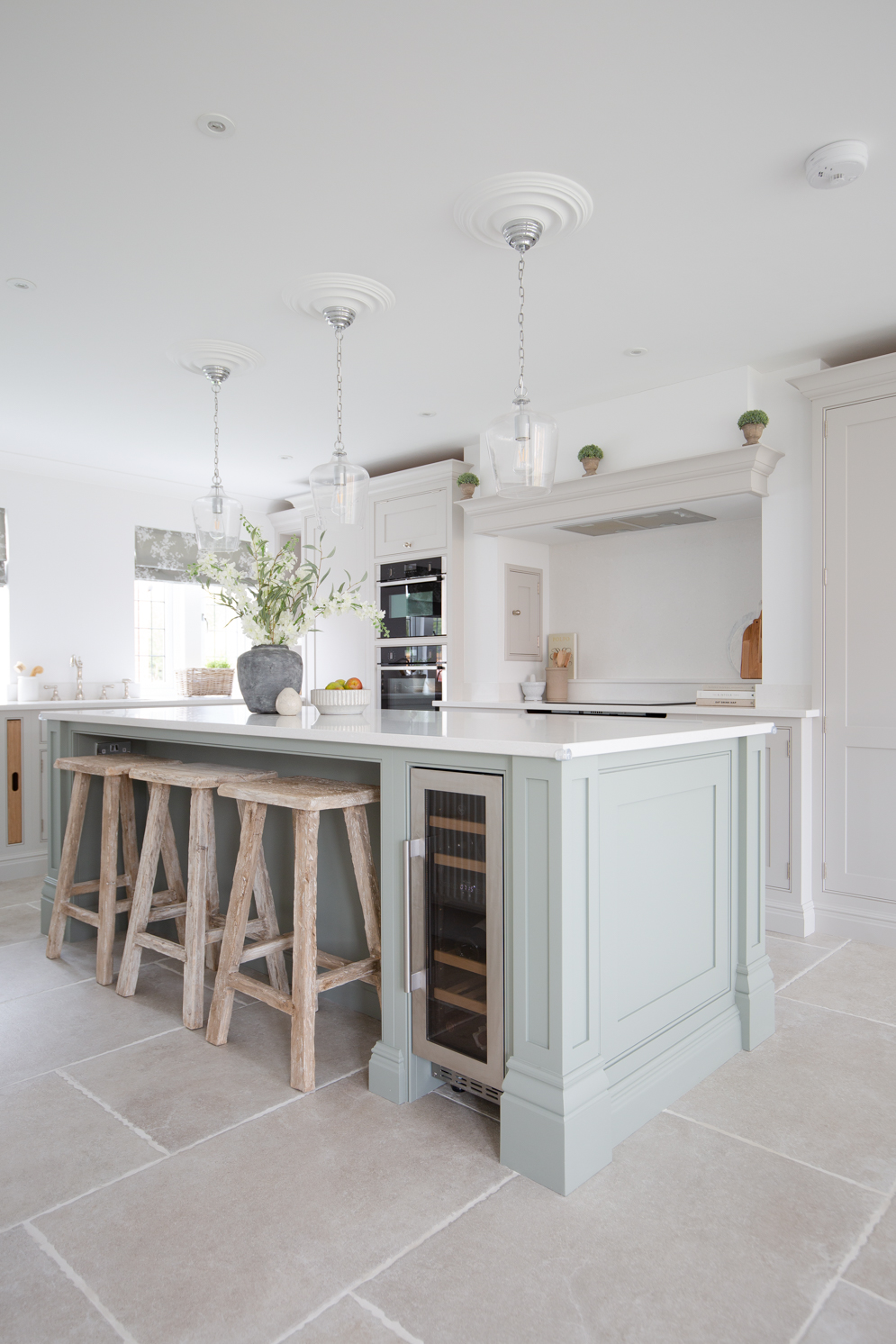
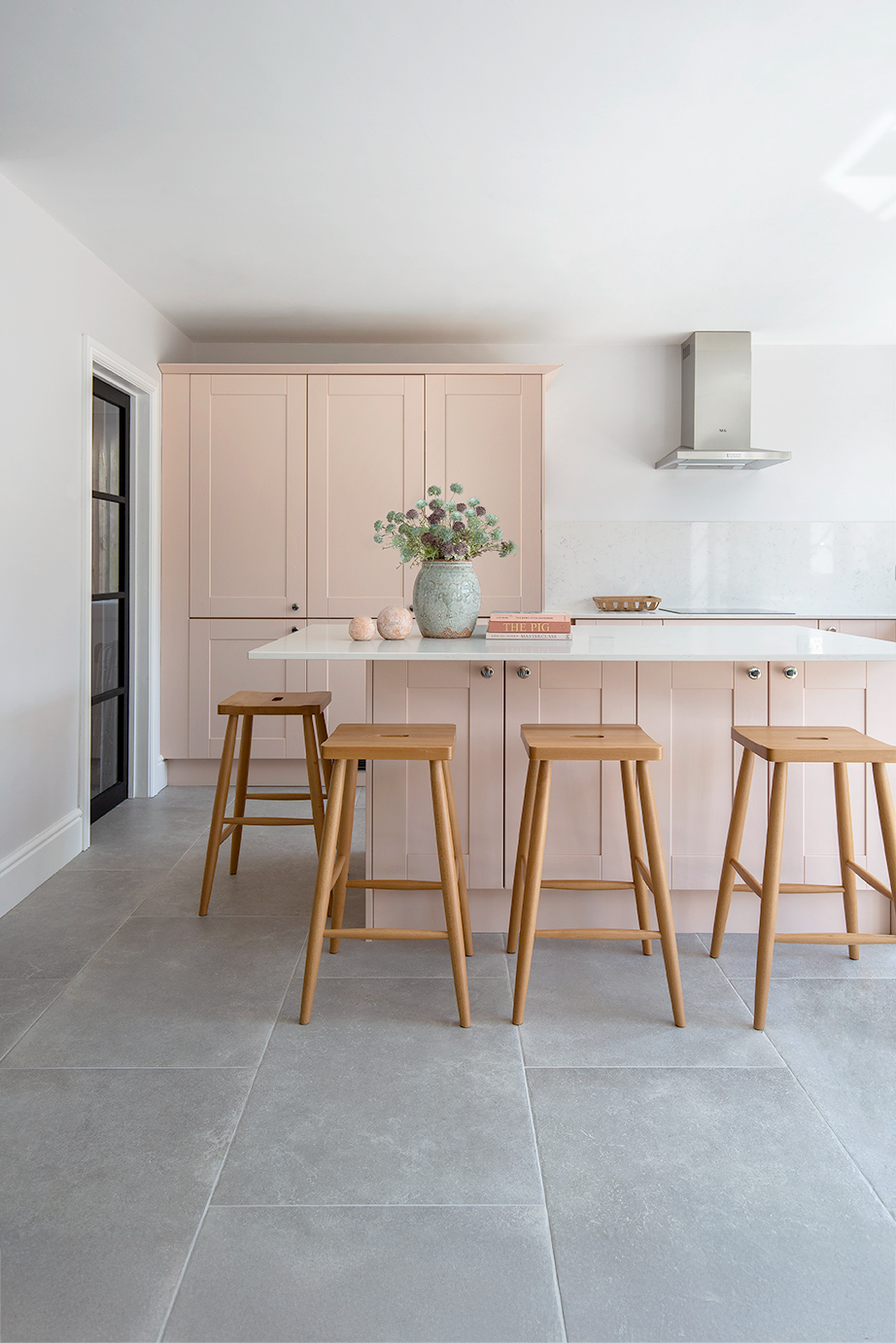
Hambleton Ivory Stone Effect Porcelain
Hambleton Grey Stone Effect Porcelain
Marble Effect Tiles
Creating the same appearance and quality of real marble tiles, marble effect tiles present another popular alternative material made of porcelain. Marble effect tiles require lower maintenance than natural marble and come in a beautiful array of tones, styles and prints.
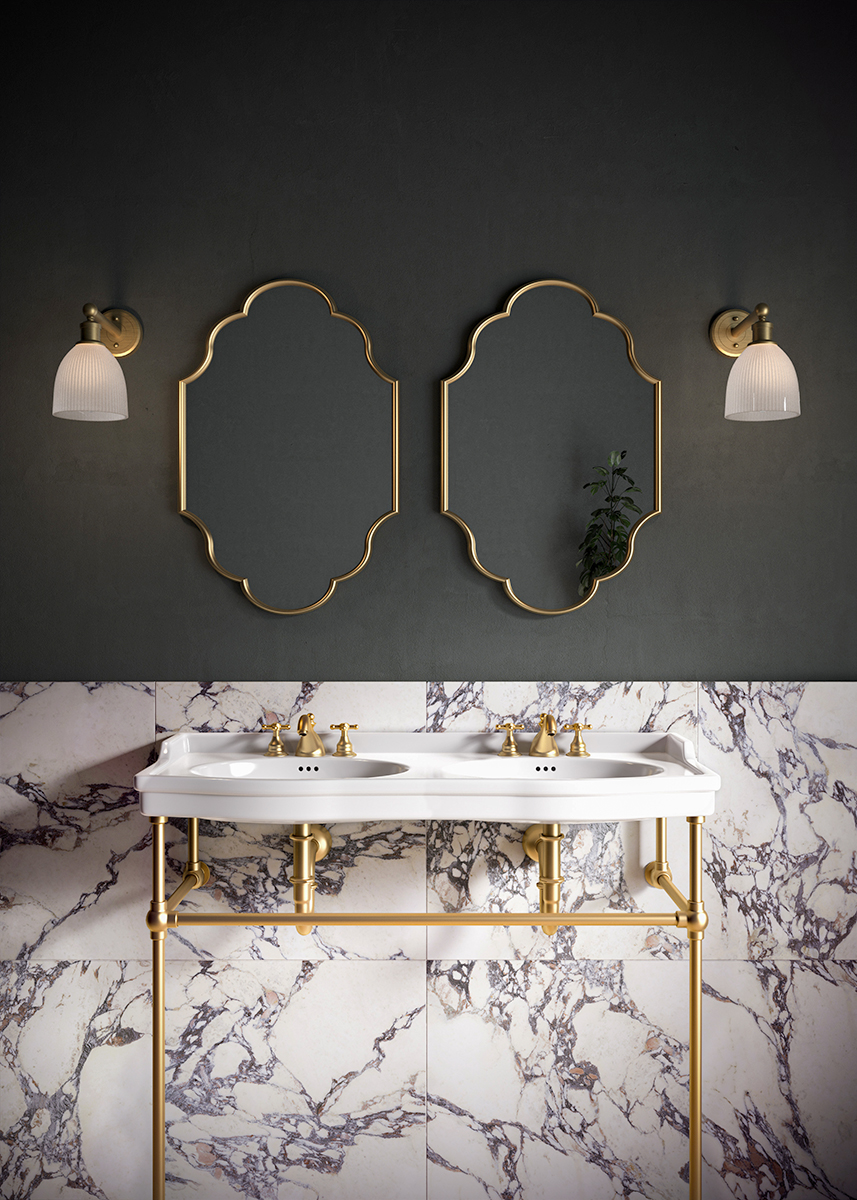

Albareto Viola Marble Effect Porcelain
Berrittini Nero Marquina & Carrara Marble Effect Porcelain
Terracotta Effect Tiles
A final porcelain equivalent to natural stone is terracotta effect tiles. The warm, baked earthy hues of terracotta has made a resurgence in recent years but now with options made of porcelain. Terracotta effect tiles are an authentic replica of popular terracotta floor tiles offering brown, red and orange hues, as well as textured and rustic charm.
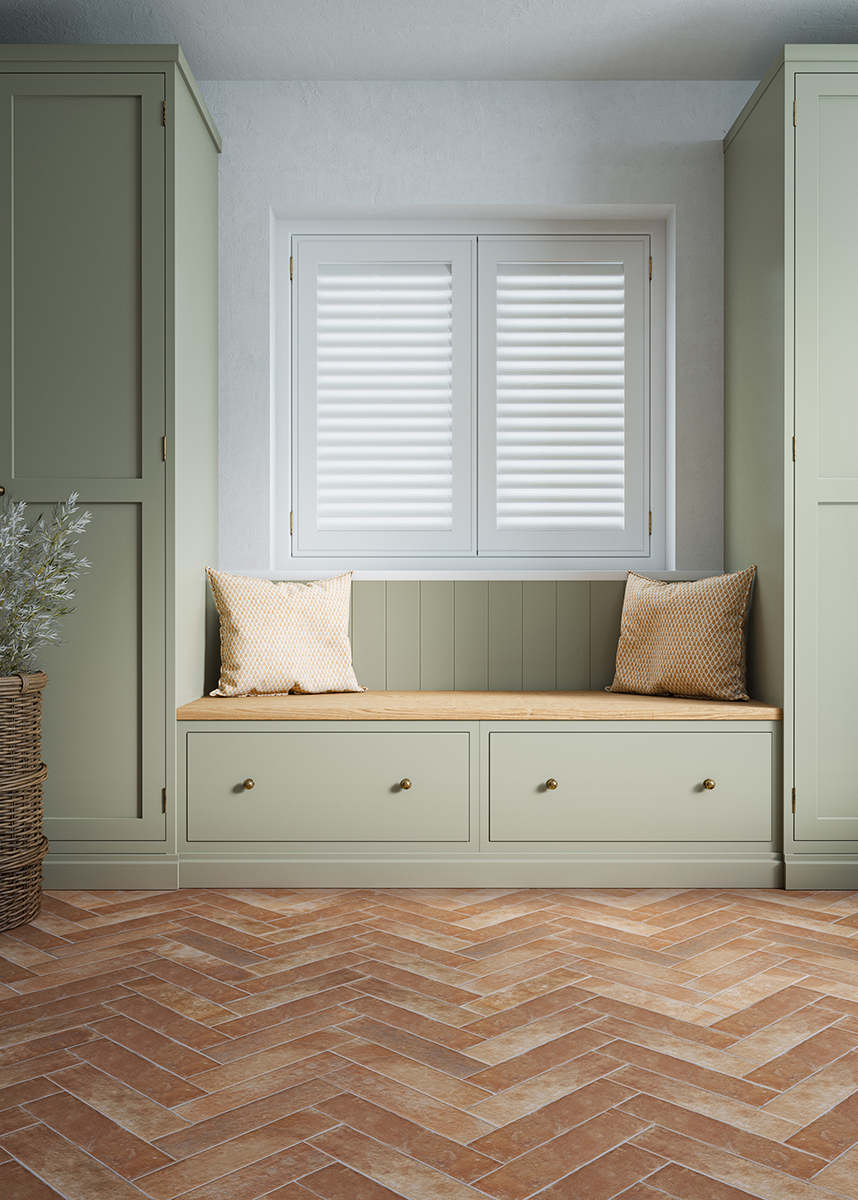
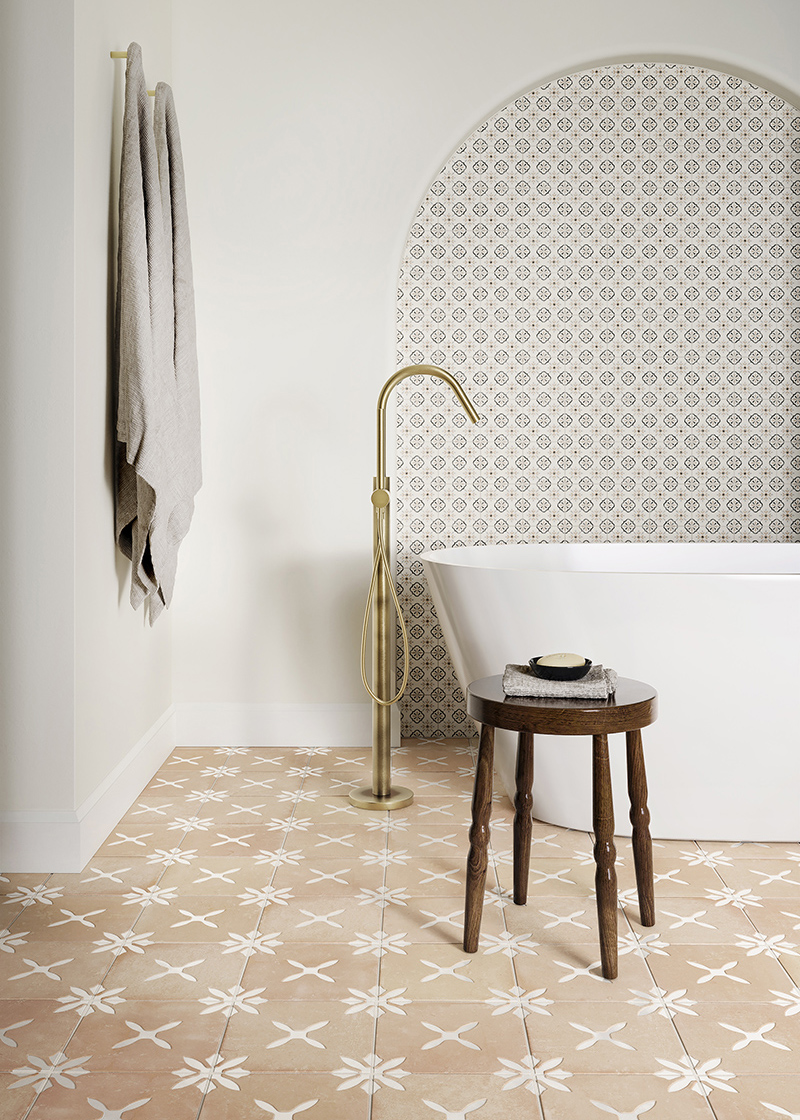
Oliva Rojo Terracotta Effect Porcelain
Salamanca Sand Decor Terracotta Effect Porcelain
Tile Size & Formats
When it comes to tile sizes and formats, this can vary from product to product, but generally speaking, natural stone such as limestone is often in a ‘Free Length’ (FL) or ‘Random Length’ tile size.
Free lengths have a fixed width (normally 400mm, 500mm or 600mm) and varying lengths ranging anywhere from 500mm up to a maximum of 1000mm. This is a very versatile flagstone format that is laid as a random brick bond for staggered joints and a natural feel.
The Dijon tumbled limestone flooring is also available in fixed rectangular tiles, square tiles and opus patterns, as well as Free Length (FL). Most natural limestones can be produced with bespoke pieces, e.g. bullnosed steps, pool copings and skirting.
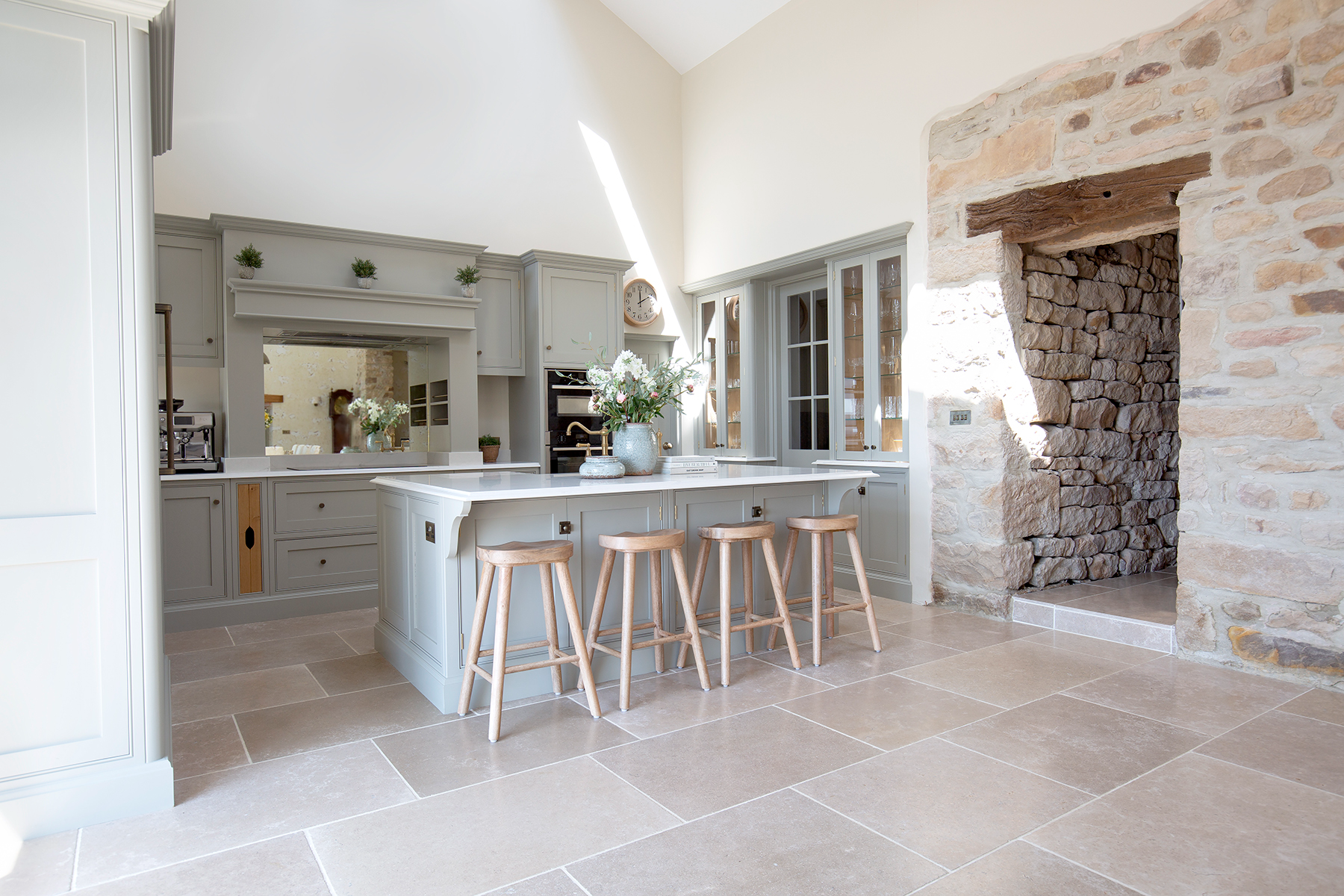
Dijon Tumbled Limestone Tiles
Porcelain tiles can be diverse in size and format, however unlike natural stone, porcelain isn’t available in the FL format but only fixed sizing. The most common tile size for stone effect porcelain flooring is a large format 900x600mm tile. This can be laid as a staggered brick bond or a straight stacked bond, depending on the desired look.
Another larger format option is 1200x600 tiles which create big impact and minimal grout joints. The Dorchester Aged White porcelain flooring is also available in an opus pattern, alongside the rectangular 600x400 and 900x600 tiles. Most porcelain ranges do offer steps, coping or skirting on special order, but are manufactured in set sizes only.
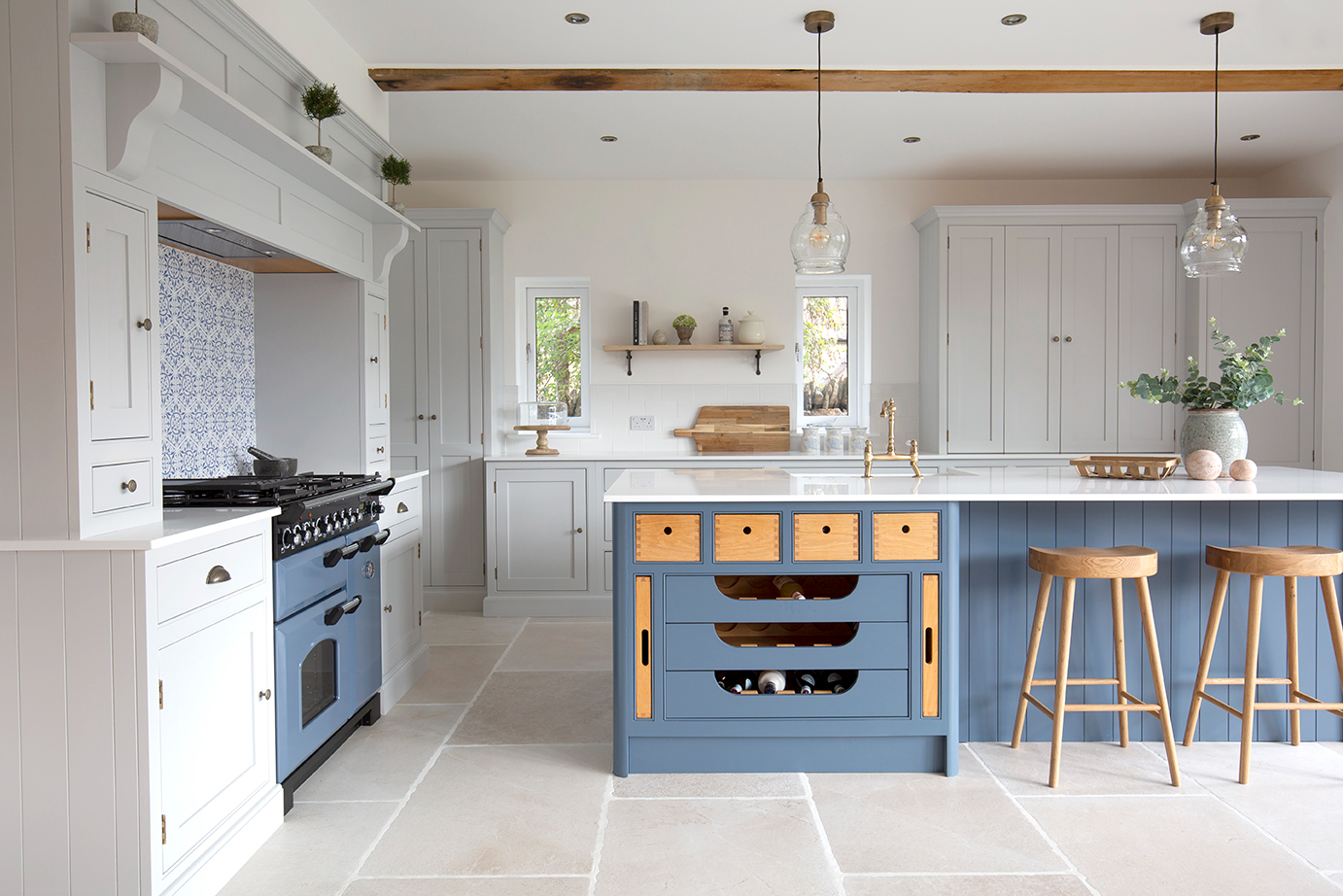
Dorchester Aged White Stone Effect Porcelain Tiles
Smaller formats such as square, metro, brick or hexagon are also on the market, particularly popular for bathroom tiles with marble effect, decoratives and terracotta effect being the favourites. Metro tiles can be laid as staggered, stacked or in the popular herringbone laying pattern.
Installation & Maintenance
Whilst it may seem the least interesting part, knowing the difference between natural stone and porcelain regarding installation and maintenance is good knowledge to have - ensuring you have tiles that will look their best for years to come.
First and foremost, both natural stone and porcelain tiles work very well with underfloor heating, following correct installation methods. Upon installation natural stone requires sealing and will likely need resealing every 4-6 years. As natural stone is porous, this sealant acts as a protective layer against water, oil and grease.
Most porcelains do not need sealing and have a very low water absorption rate, with a porosity of under 0.5%. It is essential to use levelling wedges when installing large format porcelain tiles for best results as during the firing process, it is common for a slight bowing to occur. Read our full installation guides here.
Both natural stone and porcelain are very forgiving and easy to maintain; however, it is worth noting that natural stone requires a little extra care. It is important to only use stone friendly or pH neutral cleaners for natural stone as anything acidic can damage the surface, we recommend Lithofin Wash & Clean.
Natural stone can be subject to staining, so it is worth spot cleaning as and when spillages occur. Read our guide on how to clean natural stone tiles. Porcelain is near enough stain resistant, and the majority of cleaners are suitable to use, however we would still recommend a cleaner designed for porcelain such as Lithofin Conditioning Cleaner. Read our guide on how to clean porcelain tiles.
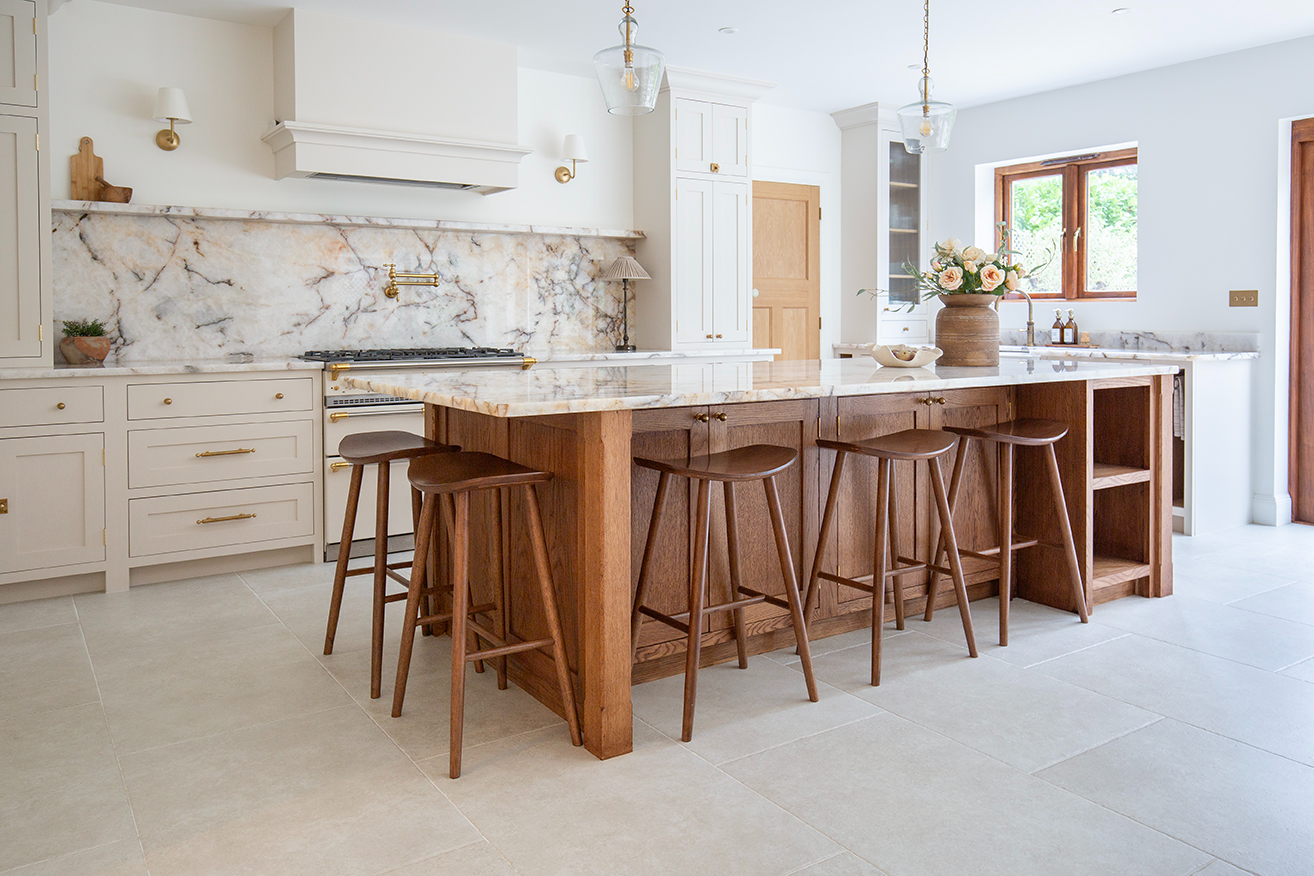
Alnwick Ivory Stone Effect Porcelain Tiles
In terms of longevity, both materials offer a durable and practical surface, natural stone can be subject to surface scratches over time and exterior natural stone paving can lighten in colour overtime – many customers find neither of these factors are of concern and actually add to the authentic feel of the tiles.
If you are wanting something more consistent and unchanging through the years, then porcelain is scratch resistant and is also UV stable so it will not lighten when used outdoors.
We hope this guide helps you in finding the right natural stone or porcelain tiles that suits your needs and wants. As ever, we recommend a visit to one of our UK tile showrooms to see the beauty of natural stone and porcelain in person.
Our friendly and knowledgeable team are also available over the phone, live chat and email to answer any questions you might have.
For further information on natural stone read our guide on what is natural stone and natural stone paving ideas for outdoor inspiration.



